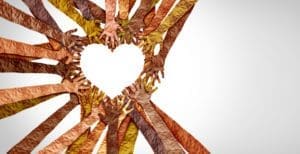 Thanksgiving is a time where most of us are reminded of the blessings we have been given and focus our attention on those who may be struggling. Recently I wrote that most of our societal ills today stem from our own poor choices including addictions of all kinds. While these certainly correlate with poverty, history shows that this kind of internal decay and family disintegration often follows the incredible affluence we have come to enjoy in the post-WW II era.
Thanksgiving is a time where most of us are reminded of the blessings we have been given and focus our attention on those who may be struggling. Recently I wrote that most of our societal ills today stem from our own poor choices including addictions of all kinds. While these certainly correlate with poverty, history shows that this kind of internal decay and family disintegration often follows the incredible affluence we have come to enjoy in the post-WW II era.
I received more than a few positive comments by email or in person, but one gentleman (whom I know) addressed me as Rev. Finke and ripped into me for willfully confusing the business and economics section of the paper with that regarding religion.
However, my undergraduate study of economics trained me to see its full scope as a discipline. The entire body of decisions we individually make, along with all the decisions of actors in government and other organizations, determines the general success or failure of the whole. Therefore, faith and culture absolutely play a role in the economic success of a society. So today, at this time of thanksgiving please forgive me for launching into a theoretical treatment of the business of life
I am indeed thankful that our nation was founded on certain Judeo-Christian principles and a belief in hard work and self-determination. Without these core values I would argue we would not have reached the level of success we all enjoy. Yet, despite the fact that at this point in history we in the United States are on average the most successful group of people whether measured by the fulfillment of our basic physical needs, the availability of the greatest technologies, or the freedom to choose how we will engage our work or other efforts, we are drowning in our affluence and might be among the least contented or happy on the planet.
One easy choice is to complain about things that we do not have. I often complain about imperfections in our world that show up as injustice or as forms of societal fish hooks that appeal to our lowest instincts and lead individuals and families into lives of misery and, yes, poverty.
We can say, I paid my taxes and the government should provide for everyone else. Or we can provide better, more effective help with money from our own pockets. Frankly, the idea of Giving Tuesday is an ironic insult, in my opinion. Why should next Tuesday be different than the other 51? I say let’s make it our goal to find at least one way each day that we can be generous to someone else.
Thanksgiving then becomes for me a time during which I am particularly drawn to focus upon the richness of our national heritage, the blessings that God has given to us collectively and individually, and especially the opportunity we possess to decide to share our own resources with others in many ways and through many organizations. I will still give my thanks to the gracious God in whom I believe and stake my eternal future.
